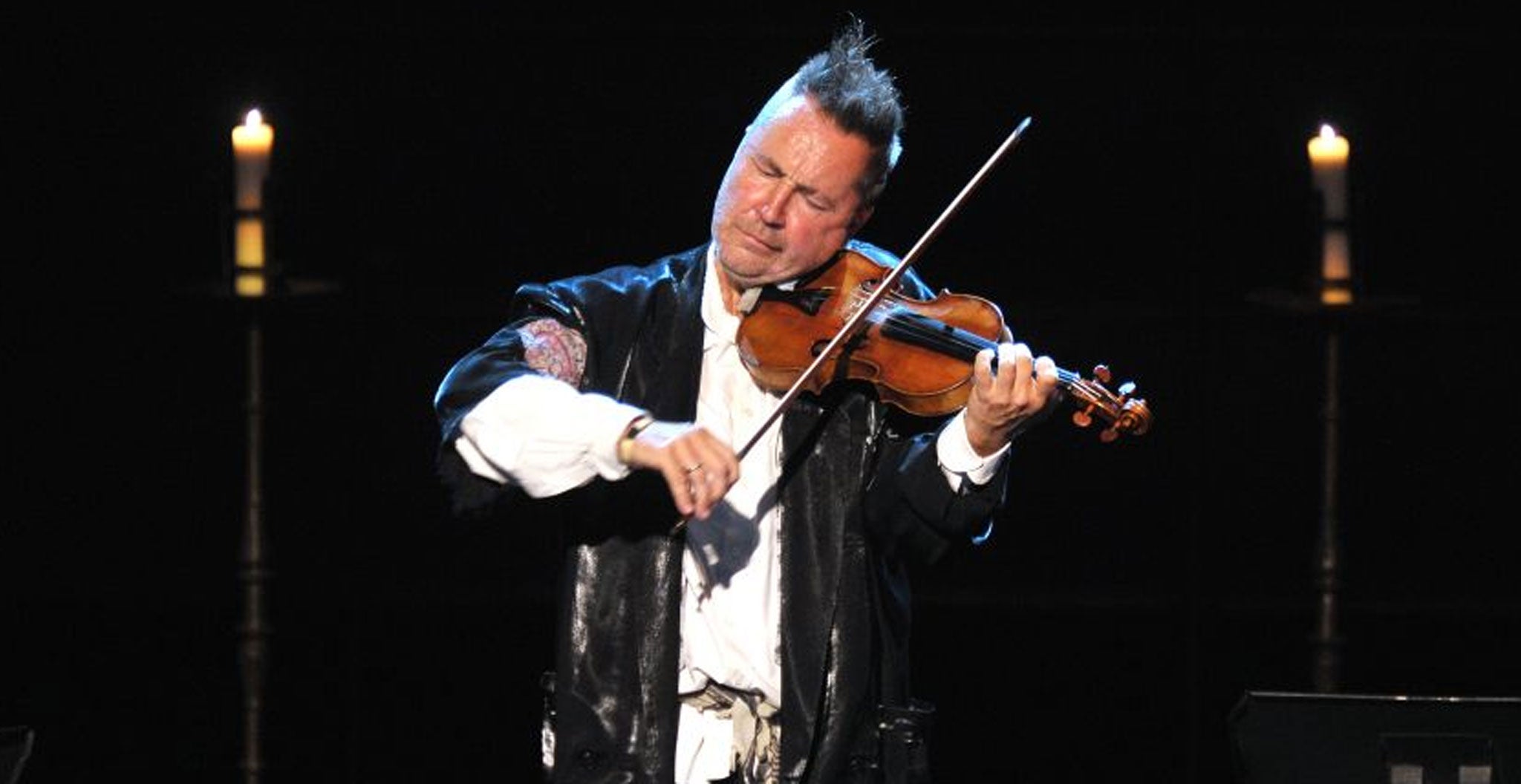Michael Church: The Proms – a colossal ensemble work with a few duff notes

o farewell to another Proms season, with its pleasures and surprises, longueurs and banalities. Moments I will long remember: blind pianist Nobuyuki Tsujii making something rich and luminous out of Rach Two, Ex Cathedra debating love in a babel of unknown tongues, the Tallis Scholars delivering transcendent a cappella polyphony, Nigel Kennedy (pictured) orientalising Vivaldi with the Palestine Strings. Most of these were Late Proms. There's a magic in the Royal Albert Hall when the streets outside go quiet and minds are sharpened.
This year, we learnt how theatrical Wagner can be, even when unstaged. The Proms programmers may have dealt a duff hand to Verdi, but nobody could claim that a full Ring Cycle plus three other Wagner operas were de trop, given the excellence of their performances. On the other hand, those planners have been guilty, as before, of some weird decisions. Why do they refuse to provide programme notes for new works in chamber Proms? When the composer in question is Harrison Birtwistle, that's just barmy. Moreover, jamming Holst and Lutoslawski into the same concert makes no sense: they appeal to different tastes. The old argument that listeners may be converted won't wash with Prommers who know exactly what they do and do not want.
Each year, Proms director Roger Wright indulges in a personal folly: last year he exhumed eight pieces by Delius, and this year we got five by the even more second-rate Granville Bantock. Wright's justification is that these works "should be given a chance", but much "forgotten" music deserves its oblivion, even if its composers were British. To Radio 3 presenters, every work is "wonderful", every performance "brilliant": in all this gush and hype, there's no place for context and reasoned analysis.
Programmers may need to rethink their basic strategy. Under internal pressure to be "relevant", are they going about this the right way? Wasting precious slots on asinine crossovers (Urban Classic), or handing them to the promoters of low-rent rock gigs (6 Music), won't pay off for long. Add to these, two Doctor Who Proms, the Light Organ Prom, and three for film music, and you can only conclude that in-house populists are getting the upper hand. Of course the Proms should operate a broad-church policy, of course they should be socially inclusive. But that shouldn't mean grabbing the first brightly-coloured thing you see on the fairground stall.

Join our commenting forum
Join thought-provoking conversations, follow other Independent readers and see their replies